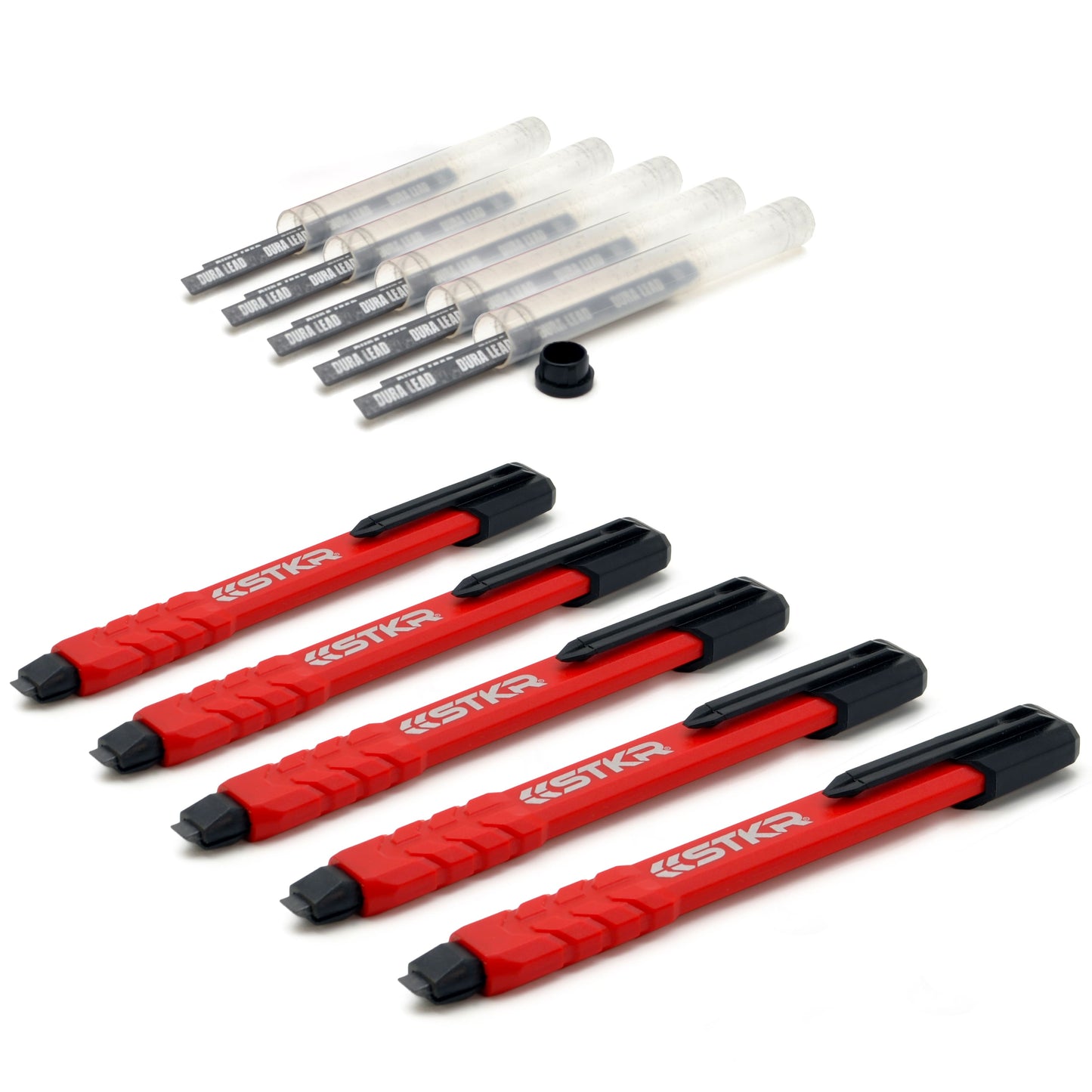
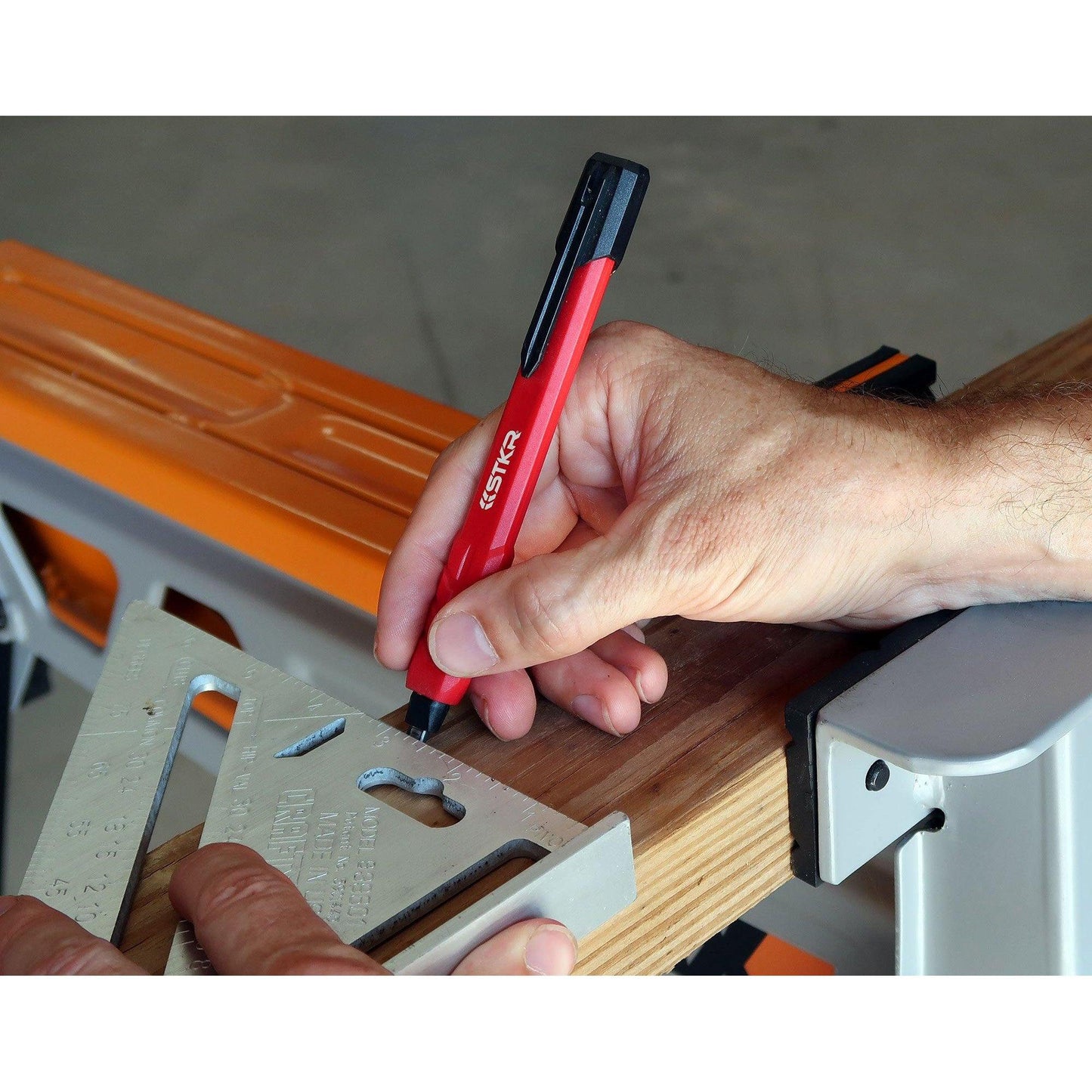
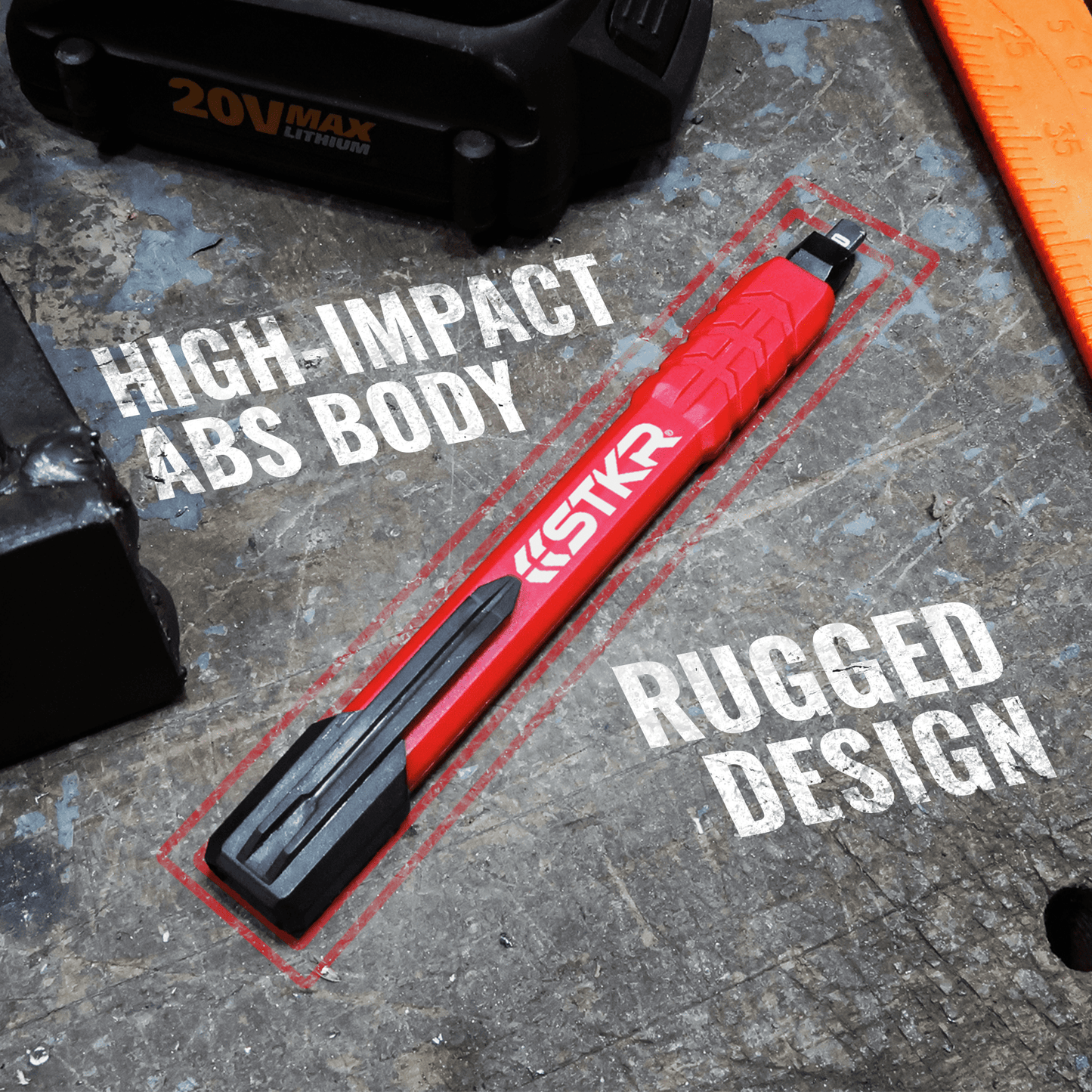
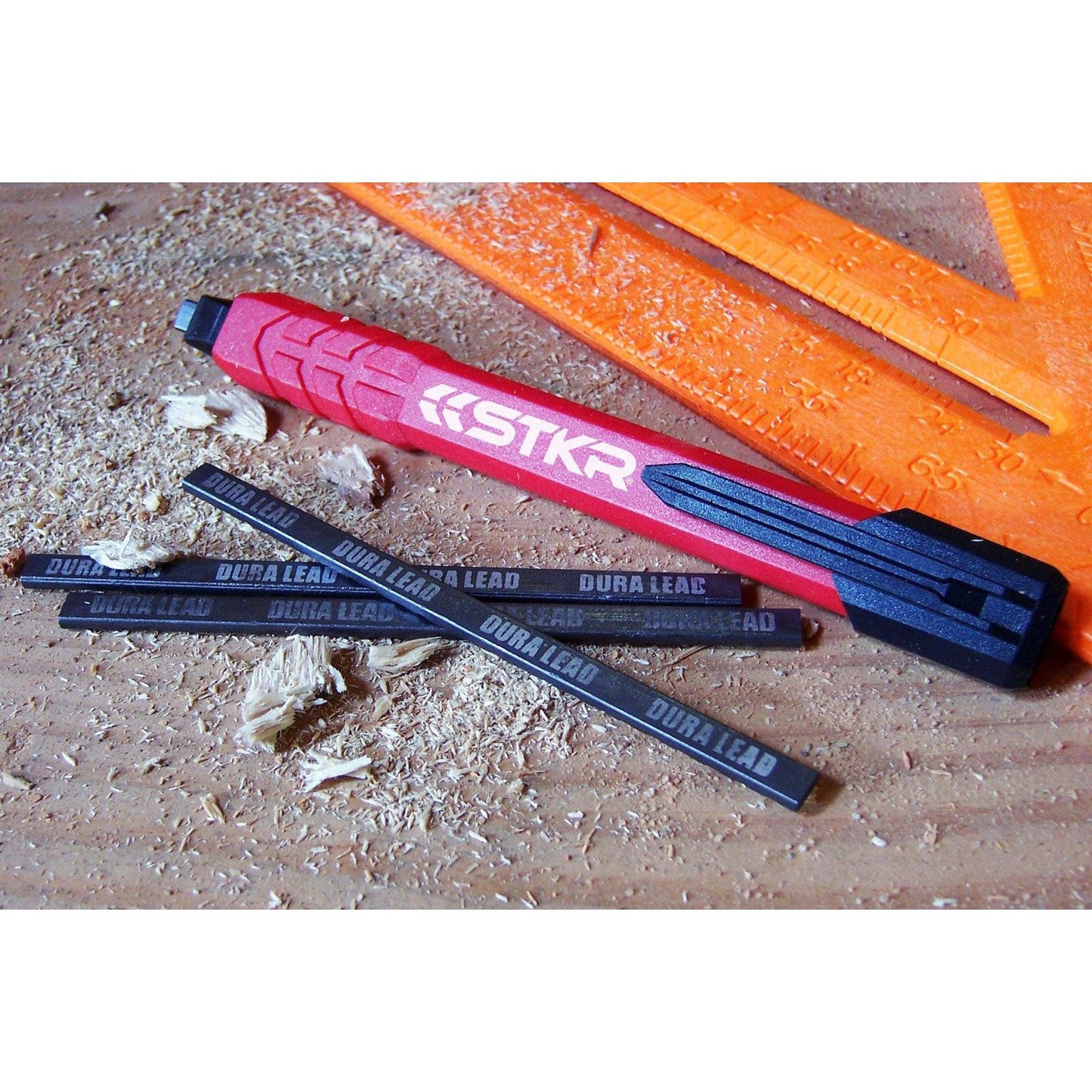
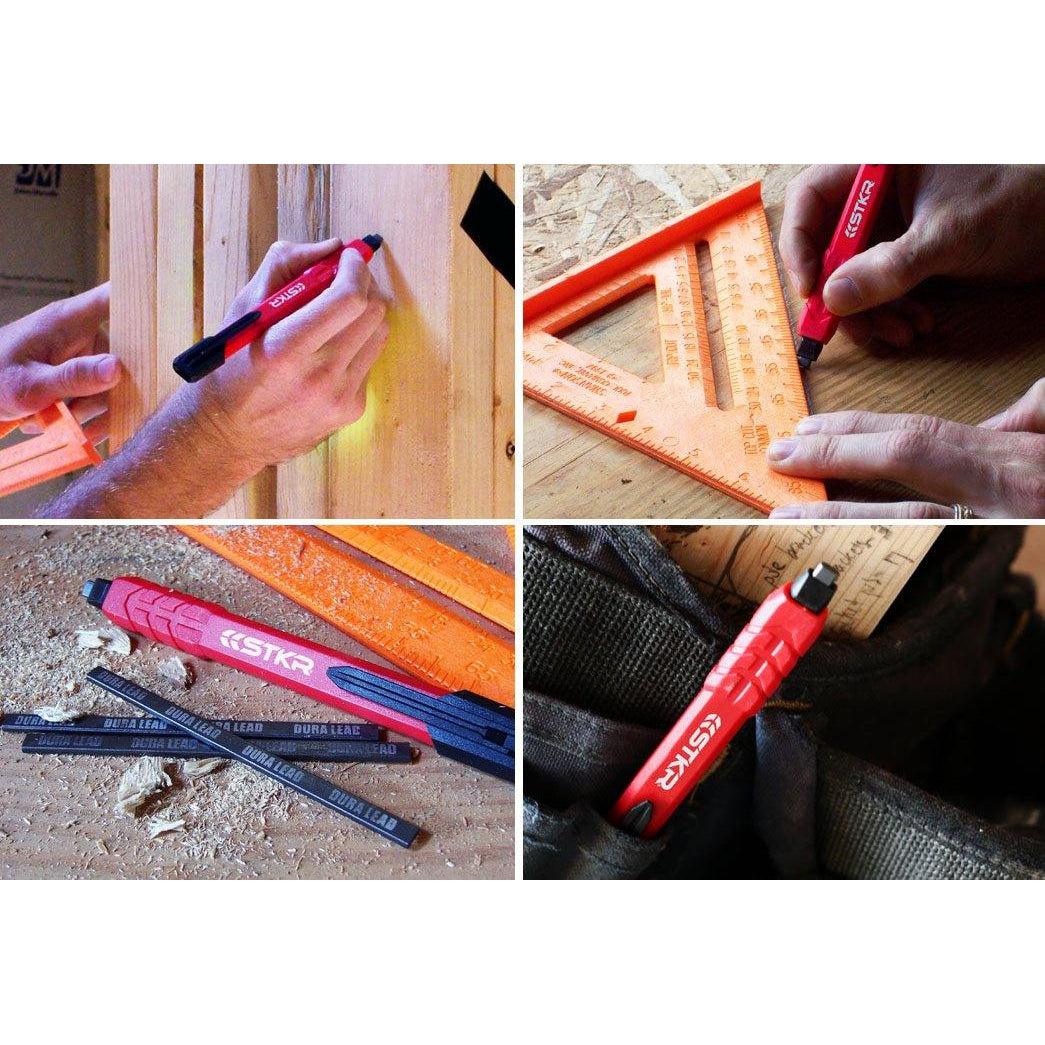
Durable Rugged Design
The STKR Mechanical Carpenter Pencil is made of high-impact ABS, it stays the same length throughout its entire life span, has a pocket clip, fits in a tool pouch, and comes with replacement DURALEAD! Finally, no sharpening. When you need more lead just press the cap and release more lead.
If you are working on fine-trim work and need precision accuracy you can "fine tune" the lead tip with sandpaper or anything rough laying around the job site, like concrete. With an angle shaped into the lead, the STKR Pencil is as accurate against a speed square as a scribe, but the lead is still a beam and therefore strong!
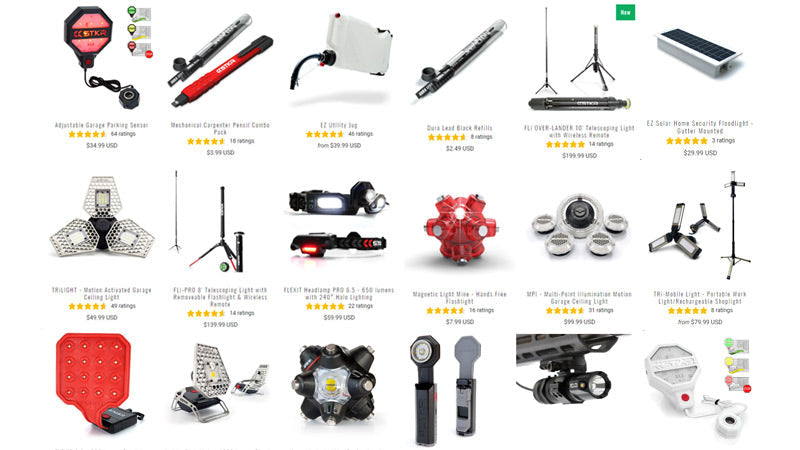








 Charpentier
Charpentier
 Duralad
Duralad



